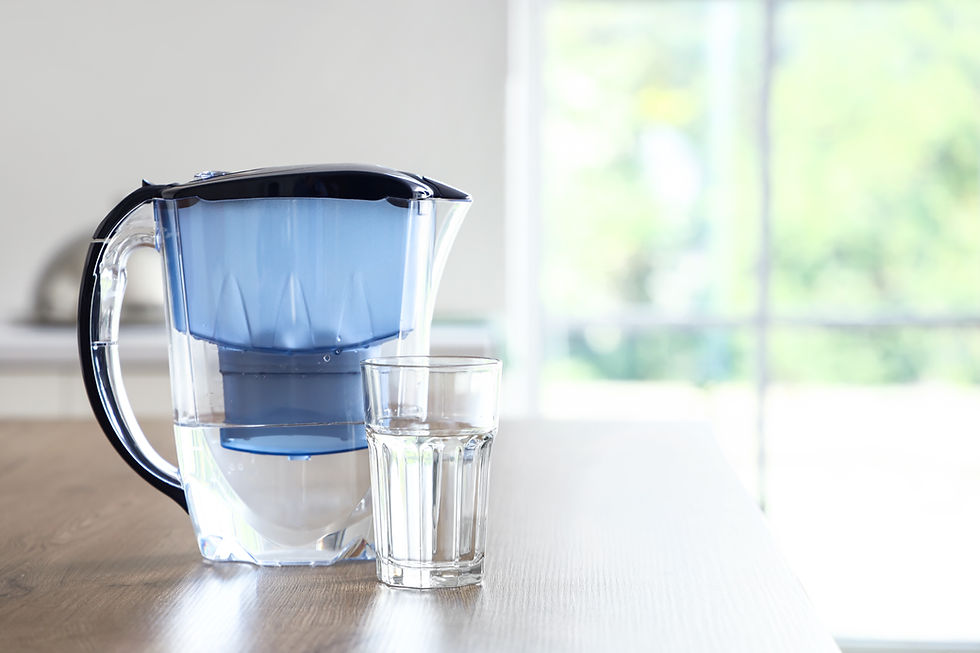The many health issues with bottled water
- Holmblad Water
- Nov 22, 2024
- 2 min read

With annual sales exceeding 64 billion dollars, bottled water producers aim to convince consumers that bottled water is not only cleaner than tap water but also healthier. However, the truth is that bottled water can pose a health risk.
Researchers from the State University of New York have discovered that as much as 93% of the world's bottled water contains microplastics, which are ingested along with the water. The findings are confirmed by another research team from Columbia University who found that a bottle of water in average contains about 240.000 pieces of small plastic, both microplastics and nanoplastics. Studies from New Hampshire's Department of Environmental Services have also recently revealed harmful levels of human-made chemicals in bottled water and similarly, a German study identified up to 25,000 different chemicals in bottled water, many of which can disrupt the body's hormone balance.
The Swedish newspaper Aftonbladet also conducted a test of 13 different mineral waters, which showed that five of them contained levels of salt, fluoride, calcium, and magnesium so high that they exceeded the Swedish authorities' limits for tap water.
Bottled water can also contain more bacteria than tap water, as it may have been stored for over a year before being consumed. The longer the water is stored, the more time bacteria have to multiply.
Another challenge is that spring water is essentially bottled groundwater. While groundwater and water treatment plants must adhere to strict directives regarding water quality, once the water is bottled, it is subject to food regulations, which are less stringent than drinking water standards. This means that even well-known bottled water brands could potentially contain waterborne diseases.
Moreover, bottled water can contain BPA (Bisphenol A), an industrial chemical used in the production of plastic bottles. Research shows that BPA can leach into the water, which can lead to hormonal disruptions, affect brain development in fetuses and young children, cause behavioral changes, reproductive issues, and increase the risk of high blood pressure and heart disease.
In addition, there are also the big obvious, but also lesser-known environmental problems associated with bottled water. According to American Business Insider, producing just one bottle of water requires 5 to 11 times the amount of water that actually ends up in the bottle, due to processes such as cleaning, filtering, and filling. This is water that could have been used to produce much healthier drinking water at home without waste.
The plastic bottle has become one of the greatest environmental enemies of our generation. We purchase nearly 1 million water bottles per minute, and in addition to the visible pollution in nature and the oceans, the carbon footprint associated with the production, storage, transportation, and recycling of bottled water is enormous.



Comments